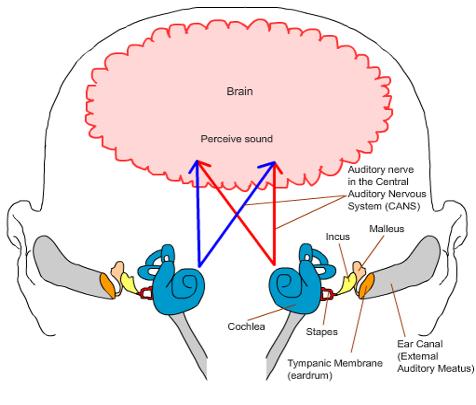
- DO I HAVE AN AUDITORY PROCESSING DISORDER SOFTWARE
- DO I HAVE AN AUDITORY PROCESSING DISORDER PROFESSIONAL
- DO I HAVE AN AUDITORY PROCESSING DISORDER SERIES
- DO I HAVE AN AUDITORY PROCESSING DISORDER TV
DO I HAVE AN AUDITORY PROCESSING DISORDER TV

Periodically touch her shoulder to remind her to focus. Seat children near the front of the class, away from an open door or a pencil sharpener or other classroom items that make noise, like fans or fish tanks.Adding bookshelves, carpeting, and drapes to a classroom absorbs the extra sound. APD makes it hard to screen out background noise. The following lifestyle changes can make a difference for children and adults with APD. Since auditory processing difficulties vary based on surroundings and development, its therapies vary by setting and age as well. Treating APD with MedicationĪuditory processing disorder is a neurological problem that cannot be treated by medication. The type, frequency, and intensity of therapy should be tailored to the intensity and type of APD present. The therapist and your child might also work on developing a customized note-taking system that enables him to capture the information being taught in the classroom. To manage language-processing problems, the therapist will train and encourage your child to ask a teacher, adult, or peer to repeat or rephrase an instruction or comment.
DO I HAVE AN AUDITORY PROCESSING DISORDER SERIES
To sharpen auditory memory, an audiologist will use sequencing routines - having your child repeat a series of numbers and directions - to exercise the listening “muscles.”.
DO I HAVE AN AUDITORY PROCESSING DISORDER PROFESSIONAL
DO I HAVE AN AUDITORY PROCESSING DISORDER SOFTWARE
Therapy includes a wide variety of exercises that target specific auditory deficits and may range from computer-assisted software programs like Fast ForWord and Earobics to one-on-one training with a speech and language therapist.

Working with a trained therapist can improve their ability to make and understand these sounds. They may mishear, or mis-say ‘that’ for ‘cat,’ or ‘dead’ for ‘bed,’ for example. People with APD have difficulty differentiating sounds. Speech therapy can improve reading and language comprehension. These can include strategies as simple as teaching students to ask for clarification or repetition of instructions. Treating APD with TherapyĬompensatory strategy approaches help people with APD take responsibility for listening success and failure with active listening and problem-solving techniques. There is not one magical, cure-all method to relieve symptoms.

In some cases, a patient may use an electronic device to aid in listening as well.ĪPD can be treated from childhood through adolescence – when the auditory pathways stop developing – and even later, though experts agree that the earlier the diagnosis and treatment, the better.Ī combination of professional, school, and home therapies with a speech pathologist is most effective.

Treatments for auditory processing disorder may include modifying the environment to reduce or eliminate certain sounds, teaching skills to compensate for the disorder, and working with an audiologist to improve the auditory deficit itself.


 0 kommentar(er)
0 kommentar(er)
